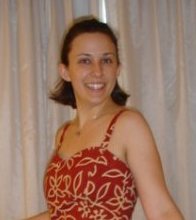Connect
Here you can:
- Find upcoming Events
- Learn how you can become an Ally to students and others with chronic conditions and/or disabilities -- see Ally Training
- Join the Mentorship Program
- Find student organizations and U-M organizations that share your interests
- Share experiences or ask questions (below)
Do you have an experience you'd like to share, or a question you need answered? Please Contact Us.
You asked: What has been a challenge for you, and how have you dealt with it effectively?
 | Leslie Rott, Sociology PhD student with lupus and rheumatoid arthritis, answered: I dealt with this challenge by learning to forgive myself
for my limitations caused by lupus and rheumatoid arthritis. More
importantly though, I dealt with it by finding others like me, who
understood what I was going through, to help support and encourage me. |
 | Juli Harrison, School of Education Alumna, currently staff at the College of Pharmacy, with temporary disability from a knee injury, answered: |
 | Cristina Sienkowski, Cell and Molecular Biology undergraduate student with fibromyalgia and chronic fatigue syndrome, answered: In high school I was very active; I played sports, participated in numerous clubs, and left myself very little time to relax. When I developed fibromyalgia and chronic fatigue syndrome during my freshman year of undergrad, I was forced to completely change my lifestyle. I could barely get to class let alone consider joining a campus organization or working a part time job. Instead of accepting my condition, I pretended it didn't exist and pushed myself to be as active and productive as I was before. Of course this backfired on me, and because I refused to ask anyone for help my grades took a big hit. |